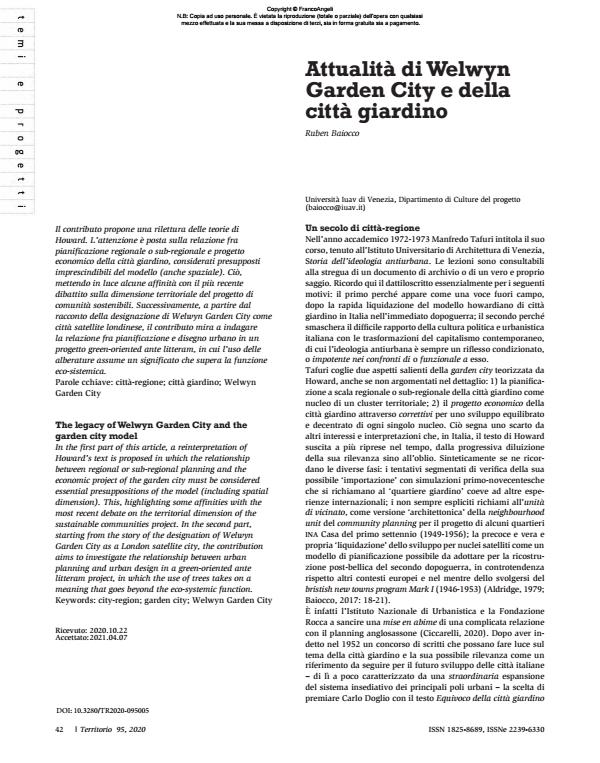Attualità di Welwyn Garden City e della città giardino
Titolo Rivista TERRITORIO
Autori/Curatori Ruben Baiocco
Anno di pubblicazione 2021 Fascicolo 2020/95
Lingua Italiano Numero pagine 11 P. 42-52 Dimensione file 1160 KB
DOI 10.3280/TR2020-095005
Il DOI è il codice a barre della proprietà intellettuale: per saperne di più
clicca qui
Qui sotto puoi vedere in anteprima la prima pagina di questo articolo.
Se questo articolo ti interessa, lo puoi acquistare (e scaricare in formato pdf) seguendo le facili indicazioni per acquistare il download credit. Acquista Download Credits per scaricare questo Articolo in formato PDF

FrancoAngeli è membro della Publishers International Linking Association, Inc (PILA)associazione indipendente e non profit per facilitare (attraverso i servizi tecnologici implementati da CrossRef.org) l’accesso degli studiosi ai contenuti digitali nelle pubblicazioni professionali e scientifiche
Il contributo propone una rilettura delle teorie di Howard. L’attenzione è posta sulla relazione fra pianificazione regionale o sub-regionale e progetto economico della città giardino, considerati presupposti imprescindibili del modello (anche spaziale). Ciò, mettendo in luce alcune affinità con il più recente dibattito sulla dimensione territoriale del progetto di comunità sostenibili. Successivamente, a partire dal racconto della designazione di Welwyn Garden City come città satellite londinese, il contributo mira a indagare la relazione fra pianificazione e disegno urbano in un progetto green-oriented ante litteram, in cui l’uso delle alberature assume un significato che supera la funzione eco-sistemica.
Parole chiave:Città-regione; città giardino; Welwyn Garden City
Ruben Baiocco, Attualità di Welwyn Garden City e della città giardino in "TERRITORIO" 95/2020, pp 42-52, DOI: 10.3280/TR2020-095005